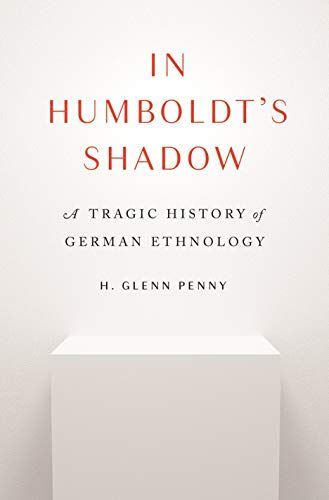
In Humboldt's Shadow A Tragic History of German Ethnology
"The Berlin Ethnological Museum is one of the largest and most important anthropological museums in the world. Housing over 500,000 objects from non-western cultures assembled since the mid-nineteenth century, the museum's collection was assembled by men who were galvanized by the ambitious vision of Alexander von Humboldt (1769-1859). Humboldt saw the multiplicity of human cultures as variations on a common theme and believed that natural science offered a means for understanding the essential unity of all people across space and time. What was needed, he declared, was to gather enough data to fashion a total history of humanity. After his death, Humboldt-inspired explorers, government officials, physicians, scientists, and even the sons of merchants fanned out across the globe to collect as much information as they could about all the peoples of the world. They used observation, discussion, inspection of written records, and, crucially, the collection and analysis of material culture from great monuments and art to simple crafts and everyday tools. Unlike their counterparts in the rest of Europe and in the United States, these early German ethnologists did not collect such objects to confirm or illustrate racist theories of human development. Rather, they began with a rejection of race science and an assumption that there are no inherent mental differences among peoples. They created these collections, and, later, founded their museums, not to support or illustrate politically-useful theories of human difference, but rather to foster the study of human cultures and histories in all their variations. In Humboldt's Shadow tells the stories of these ethnologists and the objects, collections, and knowledge they assembled - and of the tragic turn their museums took when their successors undercut their bracing Humboldtian motives. In this book H. Glenn Penny calls on museums to embrace anew this Humboldtian vision, while deepening their dialogue and engagement with indigenous peoples over the provenance and stewardship of these collections. While supporting repatriation of artifacts where appropriate, Penny argues that greater funding for the research and curation functions of contemporary museums would allow them to properly research the provenance of artifacts in their collections"--